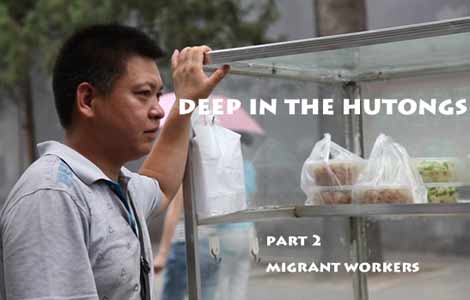More security challenges
Updated: 2013-10-14 06:56
By Yan Xuetong (China Daily)
|
||||||||
China makes new strategy to develop relations with the United States and its neighbors for common good of all
Largely due to its modern history, which is full of sufferings from foreign invasions, China used to have a deep-rooted opinion that links national security tightly with national strength, and concludes that a powerful nation has fewer challenges and security concerns.
However, the idea is changing as China meets growing challenges and security problems on its rising path, a fact that is increasingly realized by more leaders and scholars. In a speech at the Central Party School this January, Xi Jinping, general secretary of the Communist Party of China who has since also become the president of China, said that "the further our common cause progresses, the more risks and challenges we will face", and "the more unexpected situations will come".
He is right. A rising China will only meet more security problems. An obvious example is Chinese tourists, whose numbers reached 80 million last year. With more Chinese citizens traveling abroad, problems involving their security - turmoil, kidnapping, or earthquakes - are appearing more frequently as headlines. The retreat of over 30,000 nationals during the civil war in Libya best exemplifies this issue. Growing overseas investment is also bringing about new challenges. How to protect the security of investments, transportation and personnel is a new problem in China's national security strategy.
On the macro level, a more serious security concern that comes together with China's rise is the structural dilemma with the US, currently the only global superpower. China might not boast, but to the rest of the world, it is No. 2, with the gap with No. 1 narrowing.
The alarm from the US and its reaction are both obvious. When Turkey tried to purchase missiles from China weeks ago, US President Barack Obama personally gave Turkish Prime Minister Recep Tayyip Erdogan a call persuading him to give up the idea. More recently, the US refused applicants from the Chinese mainland who wished to attend an astronomy conference that will be at the Ames Research Center in California, because the conference is funded by the US National Aeronautics and Space Administration.
If these are not enough, the US has joint declarations with Japan and Australia on coping with challenges in the Asia-Pacific region. All these have sent the world a clear message that the US is wary of China's growing national strength.
The structural dilemma exists not only between China and US. Other countries, like Japan and the Philippines, also are confronting China, and seek to obtain benefits from the antagonism.
For example, Japanese Prime Minister Shinzo Abe could well take use of worsening relations with China to persuade the Japanese Parliament to edit Japan's current "peace Constitution", Article 9 of which renounces war and forbids Japan from maintaining a war footing. The Philippines government could also benefit from rising nationalism.
To cope with these challenges, China needs to adjust its national security strategy. Actually, that's what China has been doing. Since the 18th Party Congress in November, official documents began to list China's foreign strategy as "sovereignty, security and development", which means that China is paying more attention to security. Being aware of its structural dilemma with the US, China does not want any unnecessary confrontation. As a solution, China's leaders have raised the idea of establishing a new type of major-power relationship with the US, the central value of which would be to keep their competition "healthy", peaceful, and, if possible, mutually beneficial.
China's security strategy also places emphasis on its relations with its neighbors. During his visit to Central Asian and Southeast Asian countries, Xi has mentioned both the "new Silk Road" and the "maritime Silk Road", and expressed China's sincere wishes of improving relations with its neighbors.
Further, Xi said that China should consider politics more in diplomacy and consider more help to countries that support China but still have difficulties developing their economies. Mutual help is essential to the community of common destiny that China and ASEAN countries are building; China will send more help to those in need for the common good of all.
Of course, these diplomatic endeavors don't mean China will give up national defense construction. On the contrary, China needs military potential as the bottom line. China's national defense construction experienced decades of stagnation in the latter half of the last century; even now its percentage of military spending in terms of GDP is still much lower than that of the US. It is rational and just for China to strengthen its national defense construction as a remedy.
Another job China is doing is establishing a new international model. In last year's World Peace Forum, held in Tsinghua University, Xi, then still the vice-president, raised the principle of win-win relations. Being extended to diplomacy, the initially economic phrase contains new meanings that both sides should be secure in a relationship and benefit from the security.
A new, universally accepted international norm is necessary for the win-win relations. The power of all can prevent any member from breaking the norm - and that's also necessary for peace in the future.
The author is dean of Institute of Modern International Relations, Tsinghua University. This is an excerpt of his speech at a recent press salon, held by the All-China Journalists Association.
(China Daily USA 10/14/2013 page11)
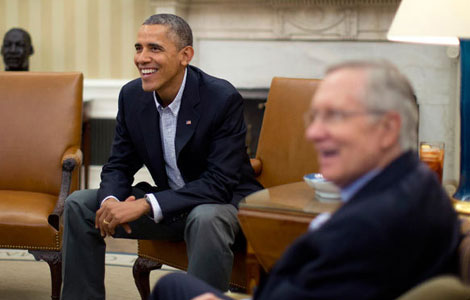
 Senate leads hunt for shutdown and debt deal
Senate leads hunt for shutdown and debt deal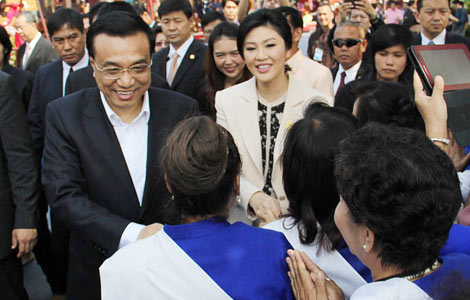
 Chinese education for Thai students
Chinese education for Thai students
 Rioting erupts in Moscow
Rioting erupts in Moscow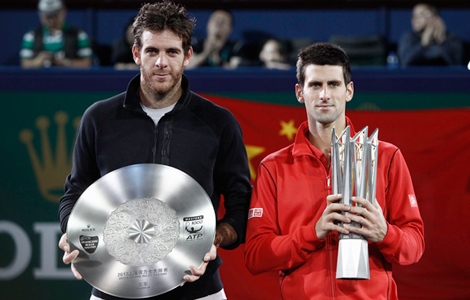
 Djokovic retains Shanghai Masters title
Djokovic retains Shanghai Masters title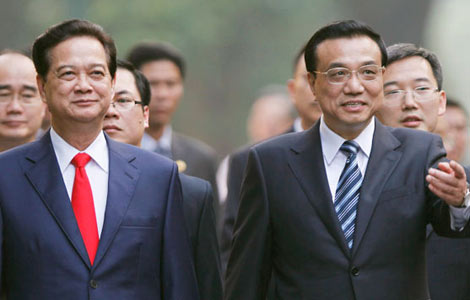
 Working group to discuss sea issues
Working group to discuss sea issues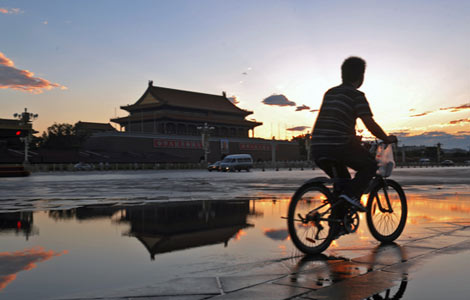
 Draft regulation raises fines for polluters
Draft regulation raises fines for polluters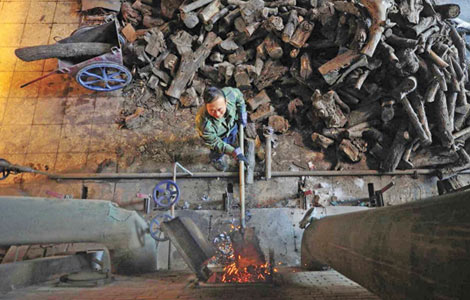
 Other measures for the capital to become green
Other measures for the capital to become green
 Colombian takes wingsuit crown
Colombian takes wingsuit crown
Most Viewed
Editor's Picks

|

|

|

|

|

|
Today's Top News
90 killed in stampede in central India
Senate leader 'confident' fiscal crisis can be averted
China's Sept CPI rose 3.1%
No new findings over Arafat's death: official
Chinese firm joins UK airport enterprise
Working group to discuss sea issues
Man hospitalized years after amputating own leg
Detained US citizen dies in Egypt
US Weekly

|

|

